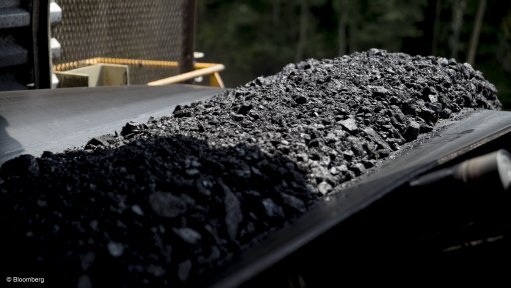
Strong cost inflation in the global metallurgical coal sector suggests that miners may focus on cost controls as prices decline over the next 18 months, says Fitch Ratings and CRU.
CRU estimates that global costs in the metallurgical coal sector increased by 18% in 2017 and continued to rise this year.
Severe weather has played a role in Australia, causing supply-chain disruption that led to demurrage penalties and increased storage costs for unshipped coal. However, costs have also been pushed up globally by higher oil prices and attempts by mining companies to maximise production to take advantage of high prices.
Coking coal prices are, however, currently sufficiently high that cost inflation has not undermined profitability. CRU estimates that the seaborne industry generated an average cash margin of 40% in 2016/17, and profitability has remained very strong this year.
The metallurgical coal market is unlikely to become oversupplied in the near term, and Fitch does not expect prices to fall deep into the cost curve, as they did during 2014 to 2016.
However, prices have already eased off from their peak of $260/t in the fourth quarter of 2016, and are likely to decline further as supply constraints continue to ease.
Fitch's current assumptions are that hard coking coal prices will average $185/t this year and $140/t thereafter. These declines could put pressure on some less competitive mining companies to reduce costs to protect margins.
Among Fitch-rated companies, Teck Resources has the largest exposure to the metallurgical coal sector, which accounted for 60% of its segment earnings before interest, taxes, depreciation and amortisation (Ebitda) in the 12 months to June 30.
The company is among those that have increased the use of contractors and rented more mining equipment to raise short-term output, which has pushed up marginal costs.
Nevertheless, Teck is still in the lower half of the global cost curve and its costs remain lower in dollar terms than in 2014. Teck has also taken advantage of strong margins and cash flow to reduce leverage.
The main credit issue facing the company is the prospect of continued project spending and its funding resulting in weaker cash flows and higher financial leverage, states Fitch.
BHP and Anglo American also have significant metallurgical coal assets, mostly located in Australia, where coal mines are generally relatively low cost by global standards. BHP and Anglo also have diversified operations, with metallurgical coal accounting for only about 16% of BHP's revenue and 17% of Anglo's in the financial year ending June 2017.
There could be increased focus on improving efficiency in the Australian coal sector, as already signalled by some companies, but CRU and the Australian government expect production to continue growing strongly over the next four years.